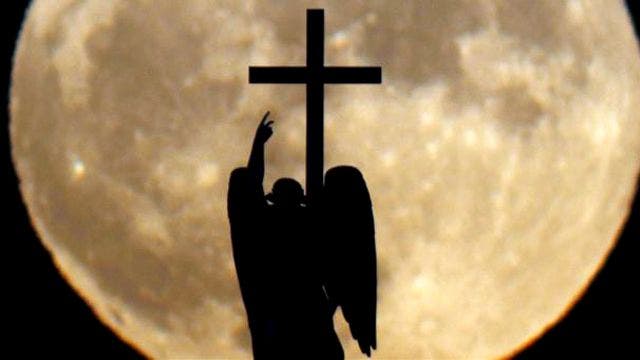
By Johnnie Moore, Published February 03, 2013, FoxNews.com
I've been asked more times than I can remember by secular people and the secular press if Christianity is now, truly...finally...a dying religion.
The scenario plays out a bit like this.
A reporter, after rattling off a steady stream of apocalyptic examples "supported by research," then asks something like: "Given the decline of Christian influence in our society, and around the world, is Christianity on a respirator?"
At this moment, I think they expect me --us -- to jump on the blame bandwagon, and moan on about why Christianity is in danger of being relegated to history's dustbin.
If you're a young leader, as am I, they expect us to unleash a torrent of criticism about what Christians and their standard bearers have done wrong.
The conversation, then, is supposed to take on a "change-or-die" funeral tenor to advance the cultural narrative that the relic of Christianity is on its way out. Our world, it is inferred, is evolving beyond religion -- especially the evangelical kind.
So, you can imagine the wrench it throws into their gears when I declare my fanatical optimism for Christianity's future.
Think about it.
The evidence is everywhere.
Never before have masses of evangelicals and Catholics been more engaged in the public square. The novelty of Jerry Falwell's Moral Majority has been multiplied a thousand times over, cementing the role of evangelicals and Catholics in every major election since Ronald Reagan. This was especially apparent in 2012 when evangelicals represented 27% of the electorate (the highest ever) with 78% of them voting for a single candidate, a Mormon nonetheless.
Prominent Christians, like Mike Huckabee, have the ability to instantly mobilize millions of Christians in support of causes that matter to them, and the Obama administration's hostility toward religious liberty didn't shove people of faith into obscurity. The bullying ignited a powder keg of religious liberty that has produced unprecedented solidarity among Catholics and Evangelicals, almost like we've never seen before.
Meanwhile, people are converting in droves.
In metropolitan cities around the world, Christianity is exploding, and tens of thousands hold worship services each Sunday in mega-megachurches across the U.S.
The Internet has empowered the faithful with new tools to reach people sitting in their homes in nations -- like Iran -- whose archaic systems greet proselytizing with imprisonment.
Today, anyone "Googling for God" can be directed to the Bible in their own language. Liberty University, the world's largest Christian university, alone provides liberal arts education in more than 200 programs of study to some 100,000 on-campus and online students.
In the "global south," Brazil's evangelical population has swelled by 30% in the last decade, even faster than its economic boon.
The same is true in the east, where China has become, perhaps unwittingly, an incubator for Christianity.
In Africa, the church even oversees some American congregations
 who've broken off from their liberal denominations. This faith is no mere "white man's religion" but an indigenous force that influences every facet of African society.
who've broken off from their liberal denominations. This faith is no mere "white man's religion" but an indigenous force that influences every facet of African society.Christianity is not only a threat to "progressive" policy and social injustices -- within which I would include the attack on religious liberty -- in the United States. Christianity's influence is seeded on every continent, and it is forcefully on the move.
Now, while it’s true that some media critics of Christianity have lost their minds touting the so-called rise of the “nones” in the U.S. – the growing number of “religiously unaffiliated” Americans – they fail to note that nearly 70% of the self-identified “unaffiliated” still admit to believing in God. In fact, one-in-five of America’s “least religious” say they pray everyday! I even know a lot of devoted Christians who, tired of cultural and denominational labels, have opted to be classified as “unaffiliated” rather than be stereotyped.
You understand, then, why, for all these reasons, I believe that Christianity is at its most important and promising moment in history.
It is nonsense to think otherwise.
Those who think so ought to be reminded of something Theodore Beza said centuries ago, "The church is an anvil which has worn out many hammers."
Read more: http://www.foxnews.com/opinion/2013/02/03/why-im-optimistic-about-christianitys-future/?intcmp=features#ixzz2JrV9Tfc7
No comments:
Post a Comment